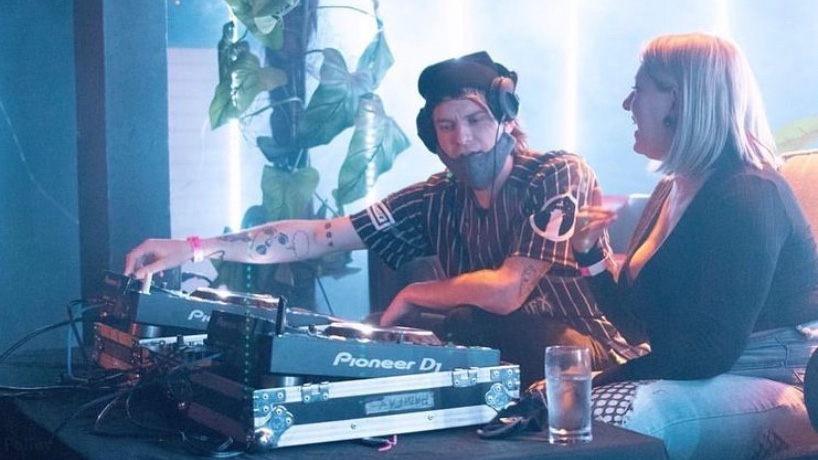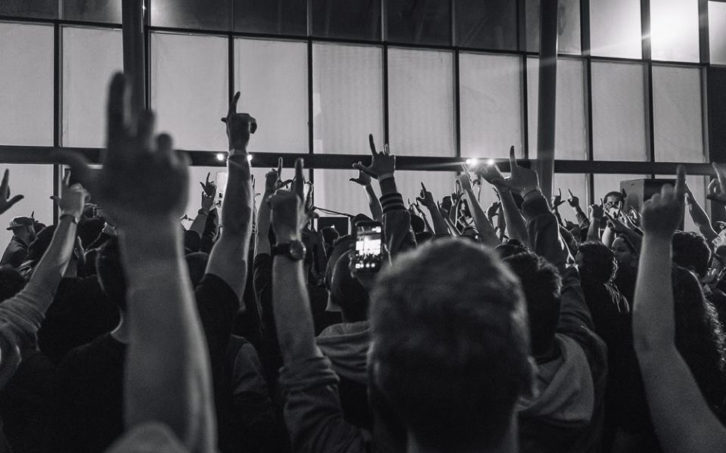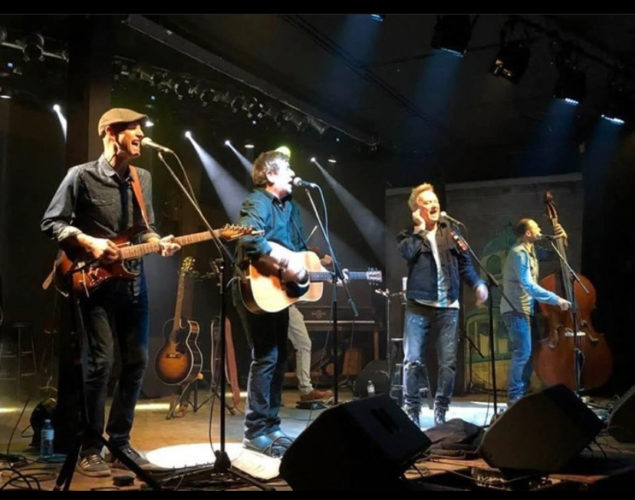The second act: How Halifax venues are reopening in COVID-19
Hear from the Bus Stop Theatre, Neptune Theatre, Hopscotch Festival and the Derby Showbar

caption
Troy Power and DJ Lyra performing at the Derby ShowbarOn Monday, the provincial government eased gathering limits for live performances, to the relief of arts venues across Nova Scotia.
COVID-19 restrictions are put in place to keep us safe and healthy. But for many venues that rely on audiences, these restrictions hit hard. With a slow reopening starting to take shape, how are some of these spaces holding up?
Bus Stop Theatre
Sébastien Labelle is the executive director of the Bus Stop Theatre in Halifax. The space operates primarily as a rental venue, and Labelle said that cancellations after the initial shut down last March caused some unease.
“[We were] cancelling all the bookings for the remainder of the calendar year for 2020 as people were cancelling their events. So for us, issuing reimbursements definitely caused a bit of cash flow worry,” said Labelle. Related stories
With the help of government subsidies and grants, they were able to power through. Additionally, after two years of fundraising, organizers were able to purchase the building in August, giving them a sense of security in the middle of COVID chaos.
The venue is small, with a general capacity of 149 and a seated capacity of 75. Restrictions and distancing cut that down, with the new capacity maxing out at around 20 audience members. This makes hosting live events impractical for the theatre.
But by pivoting, Bus Stop Theatre managed to stay active.
Over the summer, Halifax Pride used the space to film content in the absence of a live audience. Labelle says this is when he and his co-workers realized that this approach was suited for a period of uncertainty.
“We started investing in equipment and software upgrades to essentially convert from a live performance theatre into a recording and broadcast studio,” said Labelle. “That’s primarily how we’ve been operating ever since.”
This switch to a recording and broadcasting studio has allowed Bus Stop Theatre to stay open for most of the second wave, which started in the fall, while other venues went dark.
The theatre will close soon for renovations, and aims to reopen in July — with hope that audiences will be able to experience a live show in the updated space.
Neptune Theatre
The Neptune Theatre announced in July that it would be closing for the 2020-21 season. But as restrictions ease, the theatre is hoping to get patrons back in its seats.
Its main stage, Fountain Hall, has a regular capacity of 450 audience members, while its Scotiabank stage has a regular capacity of 194. With distancing they now max out at 100 and 50 respectively.
“That’s been our reality for 11 months now,” said general manager Lisa Bugden. “We’ve either been closed or been in a situation where we could have a reduced capacity, but have been challenged to either find productions or afford productions.”
The revenue generated from a production is used to cover the pre-production costs — a by no means exhaustive list of expenses such as licensing, paying actors, lighting, and costume design. These shows also take hours of rehearsal, which was only able to resume last month.
During lockdown, the theatre launched Neptune at Home, an online subscription service that featured everything from exclusive concerts to cooking and crafts.
With the latest ease of restrictions, the theatre will see a series of smaller scale productions coming to its stages. Bugden expects the project to get underway within the next three weeks.
The goal is to “connect with our community, open our doors again and bring people back through the theatres,” Bugden said.
Hopscotch Festival
The Halifax hip-hop festival has been on hiatus since 2019. The pandemic quashed attempts by organizers to hold the festival in 2020. Director Billy Comer, also a civic events planner for Halifax, is determined to bring a live festival experience to music fans before the end of the year.
“It’s really about being there live, celebrating community and having that moment where everyone gets to come together once a year,” said Comer. “It’s like a holiday weekend for hip hop.”

caption
A crowd of fans at Hopscotch 2019.Comer says they didn’t receive funding for either a live or a virtual event last year. He and his colleagues took the break as an opportunity to rethink the approach of the festival, rather than see it as a defeat.
“It’s not just having a concert. It’s having people come to a concert and realize that it’s more than just music. That’s going to be a real goal going forward,” said Comer.
Comer said the festival will look different with distancing requirements and the possibility of a modified schedule.
Hopscotch currently sits in limbo, with no set date, but Comer hopes to put on a festival by fall at the latest. He said there’s a “hangover of virtual events” and without a major budget it’s hard to make something deeply memorable.
The Derby Showbar
The Derby Showbar is the Marquee Ballroom with a COVID makeover. The space now allows for 105 attendees compared to its maximum of 800, with tables and chairs set up to allow for physical distancing.
“It’s been the biggest transformational change we’ve had in the last 10 or 15 years,” said booking manager Kyle McCracken. “It’s been a real chore navigating the different safety regulations while still providing the same level of production and show that our patrons are used to.”
Reopening this time around has been much easier for the venue. After the first lockdown, McCracken said, “we felt like we were all children again throwing our first show, our first event, although some of us have put on thousands.”

caption
Jimmy Rankin and Lennie Gallant perform at the Derby Showbar.McCracken said some patrons in the fall weren’t in full compliance of measures the venue has in place to keep everyone as safe as possible. This time around, people have settled into a routine and are following the rules.
McCracken said with limited capacity, revenue has gone down, but reopening has been great so far with a mix of electronic performances, live music, comedy, theatre and a sold-out burlesque show happening next weekend.
The number of COVID cases in Nova Scotia has plummeted since the second wave began. As of Saturday, there were 10 active cases.
“I feel like going into it the second time around, after the second wave has kind of subsided on the East Coast,” McCracken said, knocking on a nearby piece of wood, “we all feel like we’re COVID pros.”
About the author
Alec Martin
Alec (they/them) is a journalist based in Halifax, with a focus on music and arts. Their work has appeared in The Coast and they are a member...
